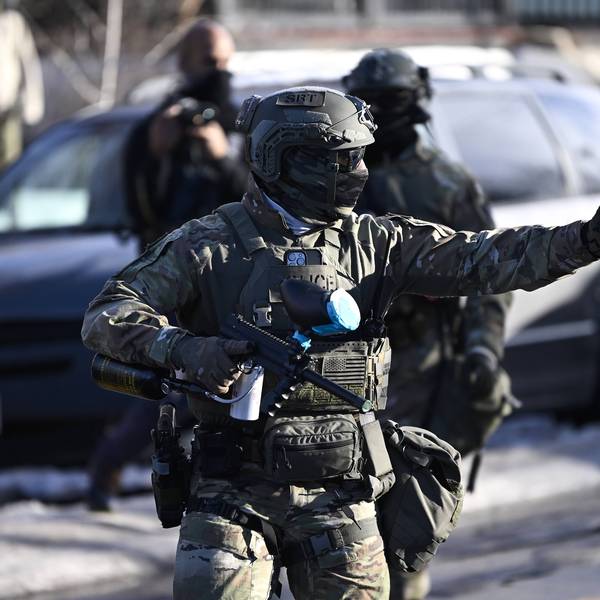A Justice and State Department review reveals that top Drug Enforcement Administration officials lied repeatedly to Justice and to Congress about deadly shootings in Honduras in May 2012--including an incident off the Mosquito Coast in which a boat was fired on, killing four passengers, among them a 14-year-old boy. DEA officials long maintained, and media reported, that those killed were drug dealers who had fired first.
Presented now as a shocking revelation unearthed by government digging, the findings are no surprise to regional experts like University of California/Santa Cruz historian Dana Frank--nor should they be to the press. When CounterSpin (5/25/12) spoke to Frank in May of 2012, she had this to say:
This is a great opportunity to talk about critical thinking about the US media, because this story would never have been broken if it wasn't for a couple reporters. I saw in the Honduran papers the day after it happened [5/12/12]; it was reported in the Honduran papers as, "DEA agents and Honduran troops killed drug traffickers and had a successful raid." And over that next weekend, the indigenous people of the region put out a statement, saying, "Wait a minute, we were killed by the military here, and we were shot on from above and we are not drug dealers."
And that went nowhere, because, frankly, if you follow Honduras closely, those kind of statements [come] from people being killed all the time by Honduran troops and police, and so you have to wait and see who's even going to confirm that, because no one will believe you.
And then what happened was on Tuesday morning [5/15/12], one Honduran paper reported that the mayor and the congressman from that region, in the Mosquitia, said that the people that had been killed by the troops were civilians, and that they had been killed by the DEA as well as Honduran troops. Thank goodness that was picked up by Bloomberg News, in a piece that didn't move that far, and AP picked up that story and moved with it, and we really want to celebrate Bloomberg for doing it and AP for doing it.
And then they started talking to the DEA and the State Department, and then of course the spin machine kicked in. The State Department said in its briefing that, yes, they did acknowledge that DEA agents were on board the helicopters, there were two helicopters at least, and they acknowledged that the helicopters are owned by the State Department, and also that there were Guatemalan military on board, which is also interesting. But at the same time, the State Department spin started to be--implying that these people were in fact drug traffickers; there was some remark about, well, local authorities are often drug traffickers, sort of impugning the mayor who had said it, and saying that, well, they had been shot at first.
And, you know, I can tell you as a historian that we don't want to believe a word that the State Department is saying here. There's just way too much of a history of lying about things. Of course, we can believe them when they admit to bad things, but I think we have a lot to learn about what was going on in this incident.
So the point isn't so much now it can be told, as now it can be admitted.



